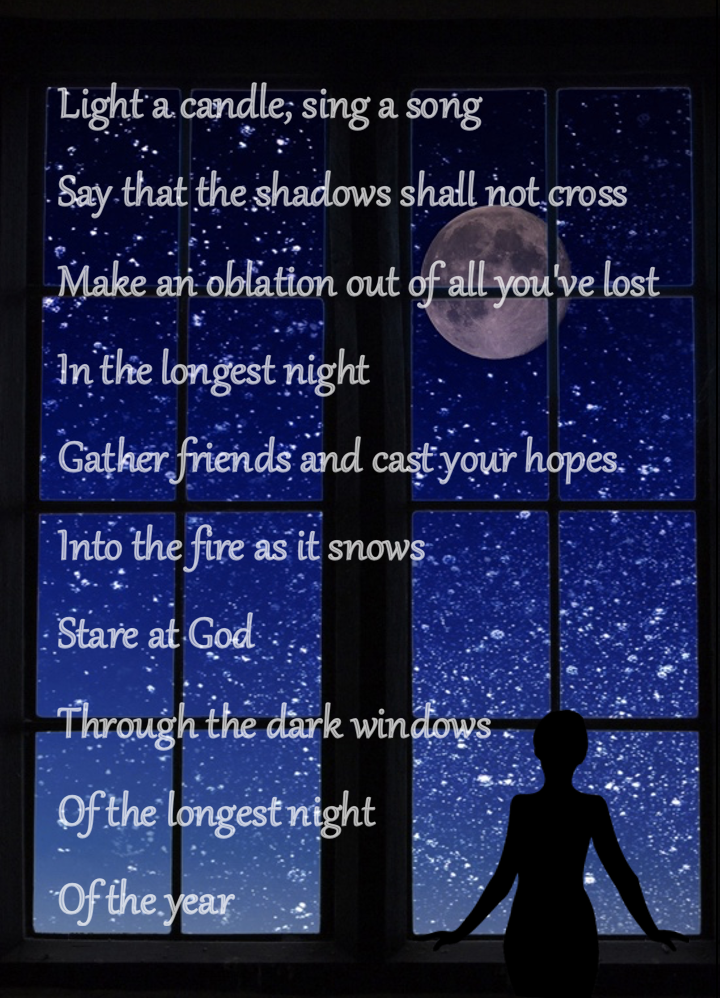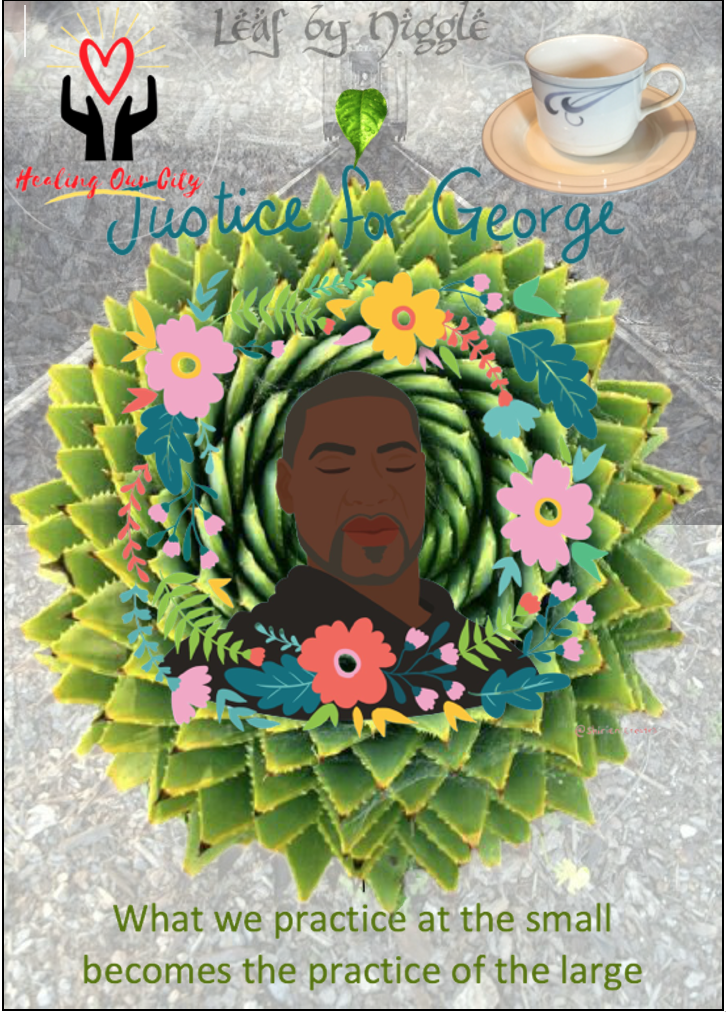2025 52 Card Project: Week 2: Blessing
Jan. 17th, 2025 02:08 pmI attended an ordination last weekend, and the pastor explained during the announcement portion of the services that out in the narthex, there was a table containing bags with sticks of chalk and a piece of paper explaining the tradition of doing a house blessing at Epiphany. We were all encouraged to take them home. I was intrigued, as I had never heard of this custom before, and I took home the bag with the chalk and read the paper.
It said:
Rob and I moved into this house in December 1992. I realized, counting back, that I am almost at the exact point where I have lived half my life in this house.
I thought of a song I've loved for years by one of my favorite artists, Peter Mayer, "Houses of Winter," which imagines homes as almost sentient entities, watching over the people in their keeping. ( The Houses of Winter )
When we moved into this house, I was seven months pregnant with Fiona (convenient, because I wasn't expected to lift anything heavier than a waste basket on moving day). I brought my babies home to this house and raised them here. Rob and I loved each other here, and it was my anchor when he died.
This home has sheltered a family. Now it is just me.
I have often wished I come up with a proper name for the house, as some of my friends have for their own homes, but nothing ever quite seemed to fit. Yet it has a personality. It was built in 1916 and has beautiful bones, but it is whimsical and sometimes temperamental, too. The furnace in the basement is original to the house, an octopus monstrosity that crouches in the darkness, tentacles reaching in all directions, hemmed in by asbestos, greedy as hell for natural gas, yet as reliable as could be desired. The electrical system is barely adequate. The floors slope toward the midline, the tile floor in the bathroom is cold, and the light switch in the bedroom says 'NO' instead of 'ON' because it was installed upside down. The less said about the paneling installed in the hallway and two of the bedrooms, the better.
The house regularly demands tribute in expensive repairs: a new roof. Drain tile in the basement. Regular repainting. The walls are threaded through with cracks in the plaster.
I have tried to make my home more my own as I have been slowly cleaning out Rob's stuff. I have never had a pet while living here (allergies make it impossible). It is just me. And the house.
I've eaten tomatoes and Swiss chard grown in the backyard and cooked thousands of meals in the kitchen. I've probably cried in just about every room in the house. The walls have soaked up so much laughter, the yells from so many fights, the joy of so many celebrations (perhaps that's why they are cracking so much).
It feels almost like...like it's the two of us now, the house and me. It is almost anthropomorphic, in other words, as in the Peter Mayer song. This house has watched over and sheltered my family, been my comfort and haven in times of struggle and grief. Now it watches over me. It seems more personal. Just as it has been a blessing to me, it seems only fitting to bless and thank the house in return.
Background: a dark wooden front door, overlaid at the top with a stitched sampler reading 'Bless This House." The top of the door has an inscription in white letters "20 † C † B † M † 25." Lower center: a mesh bag containing a piece of chalk hovers over three porcelain figurines of the three wise men. A pair of hands reaches up from the bottom, cupping the sampler in blessing.
Blessing

Click on the links to see the 2025, 2024, 2023, 2022 and 2021 52 Card Project galleries.
It said:
For centuries, Christians have celebrated the season of Epiphany by chalking their outside front door with a blessing. You are invited to try it at your home.Reading about this tradition got me thinking about my house.
The Traditional Chalk Blessing:20 † C † M † B † 25
Surrounding the blessing is the date of the new year (2025). The crosses between the letters symbolize Christ.
CMB has two meanings. It signifies the traditional names of the three magi who visited Jesus (Caspar, Melchior, and Balthazar), and it stands for the Latin phrase "Christus mansionem benedictat," meaning "May Christ bless this house."
Rob and I moved into this house in December 1992. I realized, counting back, that I am almost at the exact point where I have lived half my life in this house.
I thought of a song I've loved for years by one of my favorite artists, Peter Mayer, "Houses of Winter," which imagines homes as almost sentient entities, watching over the people in their keeping. ( The Houses of Winter )
When we moved into this house, I was seven months pregnant with Fiona (convenient, because I wasn't expected to lift anything heavier than a waste basket on moving day). I brought my babies home to this house and raised them here. Rob and I loved each other here, and it was my anchor when he died.
This home has sheltered a family. Now it is just me.
I have often wished I come up with a proper name for the house, as some of my friends have for their own homes, but nothing ever quite seemed to fit. Yet it has a personality. It was built in 1916 and has beautiful bones, but it is whimsical and sometimes temperamental, too. The furnace in the basement is original to the house, an octopus monstrosity that crouches in the darkness, tentacles reaching in all directions, hemmed in by asbestos, greedy as hell for natural gas, yet as reliable as could be desired. The electrical system is barely adequate. The floors slope toward the midline, the tile floor in the bathroom is cold, and the light switch in the bedroom says 'NO' instead of 'ON' because it was installed upside down. The less said about the paneling installed in the hallway and two of the bedrooms, the better.
The house regularly demands tribute in expensive repairs: a new roof. Drain tile in the basement. Regular repainting. The walls are threaded through with cracks in the plaster.
I have tried to make my home more my own as I have been slowly cleaning out Rob's stuff. I have never had a pet while living here (allergies make it impossible). It is just me. And the house.
I've eaten tomatoes and Swiss chard grown in the backyard and cooked thousands of meals in the kitchen. I've probably cried in just about every room in the house. The walls have soaked up so much laughter, the yells from so many fights, the joy of so many celebrations (perhaps that's why they are cracking so much).
It feels almost like...like it's the two of us now, the house and me. It is almost anthropomorphic, in other words, as in the Peter Mayer song. This house has watched over and sheltered my family, been my comfort and haven in times of struggle and grief. Now it watches over me. It seems more personal. Just as it has been a blessing to me, it seems only fitting to bless and thank the house in return.
Background: a dark wooden front door, overlaid at the top with a stitched sampler reading 'Bless This House." The top of the door has an inscription in white letters "20 † C † B † M † 25." Lower center: a mesh bag containing a piece of chalk hovers over three porcelain figurines of the three wise men. A pair of hands reaches up from the bottom, cupping the sampler in blessing.

Click on the links to see the 2025, 2024, 2023, 2022 and 2021 52 Card Project galleries.













